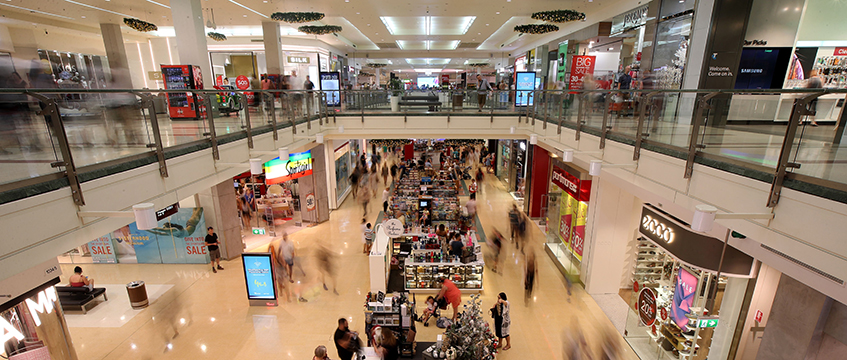Retail sales improve in May
The decline in retail sales in the UK has shrunk in May compared with the previous month, but the sector continued to struggle with trading during lockdown.
On a total basis, sales fell 5.9% in the four weeks to 30 May compared with a 1.9% decline in May 2019, according to the latest BRC-KPMG retail sales monitor.
This was the second-worst decline recorded since the monitor began in 1995, ahead of its performance in April this year.
The decline in retail sales in the UK has shrunk in May compared with the previous month, but the sector continued to struggle with trading during lockdown.
On a total basis, sales fell 5.9% in the four weeks to 30 May compared with a 1.9% decline in May 2019, according to the latest BRC-KPMG retail sales monitor.
This was the second-worst decline recorded since the monitor began in 1995, ahead of its performance in April this year.
The decrease was above a 9.4% three-month average drop in sales on a total basis, but was deeper than a 12-month average decline of 2.6%.
Excluding temporarily closed stores, retail sales grew by 7.9% on a like-for-like basis during the month, compared with a 2.2% reduction in May 2019. This was mostly driven by online sales.
Online non-food sales increased by 60.2% in May, against a growth of 4.4% in May 2019. This is above a 12-month average growth rate of 12.9%.
The online penetration rate for non-food retail increased to 61.9% in May, from 31.4% in the same month last year.
In the three months to May, in-store sales of non-food items declined 50.3% on a total basis. This was worse than a 14.8% total average decline over the past 12 months.
Non-food retail sales dropped by 21.8% on a total basis, below the 12-month total average decline of 6.4%.
Food sales increased 5.6% on a total basis during the same three-month period, higher than the 2.1% total average growth rate for the past 12 months.
Helen Dickinson OBE, chief executive of the British Retail Consortium, said food sales were boosted as more consumers hosted drinks, barbeques and picnics at local parks.
She noted that clothing and beauty sales also improved slightly on April, as people left homes to meet with friends and family outdoors.
Office supplies, fitness equipment and bicycles continued to perform well in lockdown, while DIY was boosted by the opening of garden centres.
Dickinson said: “While the month showed record growth in online sales, many retailers will be anxious to see whether demand returns to our highstreets when non-essential shops reopen from 15 June.
“Weak consumer confidence and social distancing rules are likely to hold back sales. Furthermore, there are concerns that if government support is withdrawn too quickly, shops and businesses will not survive.
“Until the situation improves, retailers urgently need support on rents and negotiations with their landlords as high fees could force some physical retailers to shut for good.”
Paul Martin, UK head of retail at KPMG, said: “As restrictions ease, retailers have much to consider during the pandemic’s recovery phase. Stores may soon have the greenlight to reopen but it will be a gradual affair with safety front of mind, and some doors may not reopen at all.
“Covid-19 has acted as an accelerant in the shift towards having less of a physical presence, not least due to the obvious need to radically reduce costs for survival.
“We’re also witnessing historically high levels of sales transacted online – currently over 60% – and while this will ease as more stores open, consumers have formed new habits that will see the online channel continue to be more prominent going forward.”
To send feedback, e-mail pui-guan.man@egi.co.uk or tweet @PuiGuanM or @estatesgazette











